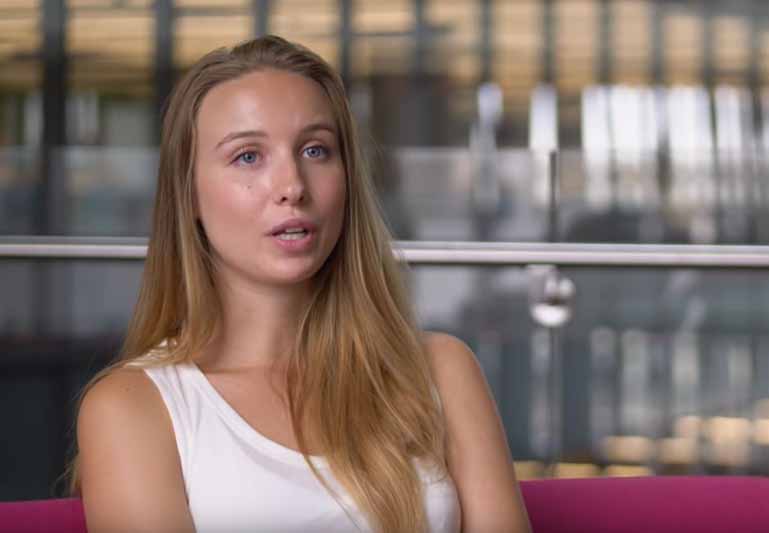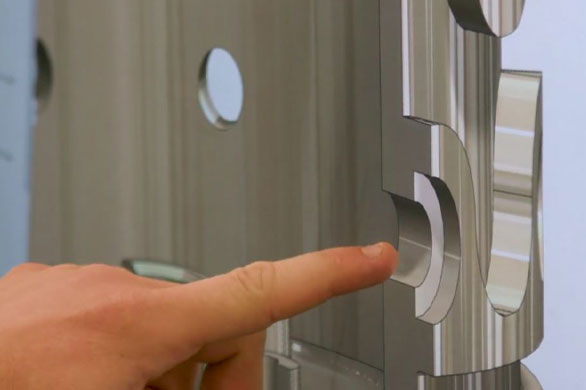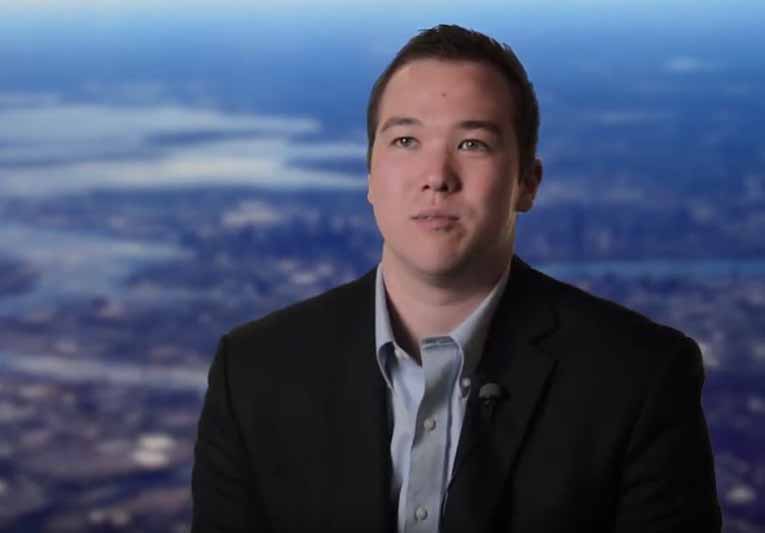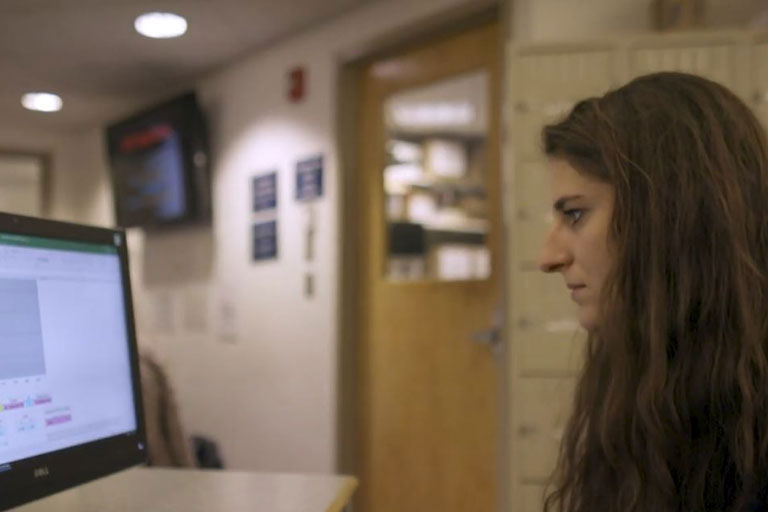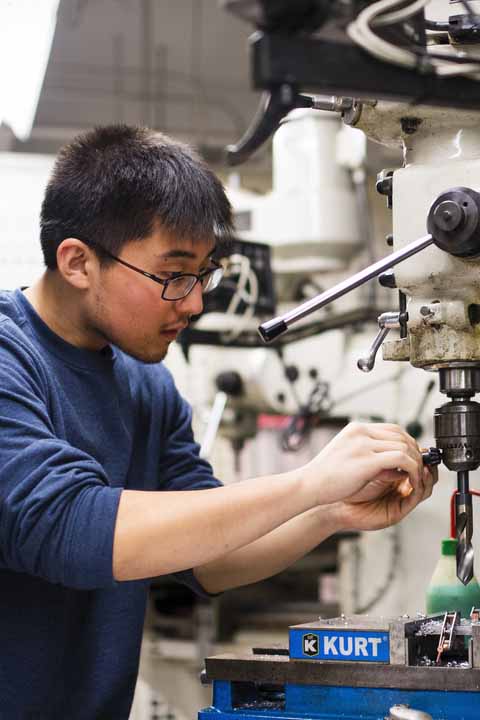
Co-op & Experiential Learning
Combining rigorous academics with experiential learning opportunities
Northeastern’s approach to education combines rigorous academics with experiential learning anchored by our world-renowned cooperative education program. Experiential learning encompasses our co-op program as well as project-based learning, research, global experiences, service learning, and student organizations.
Research Experiences
Research is an integral part of our experiential learning portfolio at Northeastern. Our undergraduate and graduate students are gaining real-world experience by working with our faculty to uncover innovative solutions to solve today’s pressing global challenges. There are a wide range of opportunities for students from co-op and study abroad experiences, to working alongside faculty in their labs, as well as part of our research centers.
Cooperative Education
Both undergraduate and graduate students are eligible to participate in co-op, where students can gain up to eight months of industry experience each co-op as part of the academic program while helping to finance their education. Ninety percent of undergraduates participate in co-op and they typically do two to three six-month co-ops.
Cooperative education assignments increase in responsibility and technical challenge as students progress through the program. Entry level co-op positions in mechanical engineering may be in manufacturing, quality assurance and testing, or involve 3-D CAD modeling, while more advanced-level positions will allow students to gain experience in the design process, including advanced 3-D modeling, design for manufacturability, prototyping, and systems engineering.
Students in the industrial engineering discipline may utilize co-op to concentrate on one industry segment and build an increasingly technical skill set with each experience or explore the breadth of career opportunities over the course of several co-op rotations such as healthcare process improvement, supply chain logistics, business analytics, manufacturing operations, and more.
- Schedule: Undergraduate students work for 6 months, from January – June and July – December. Graduate students work for 4, 6, or 8 months at a time depending on the position and the student’s availability.
- Hours: Co-op positions are full time (40 hr/wk) during which time the student has no obligations to the school, but is focused full time on their employment – making a substantial contribution to their employer while simultaneously learning and applying course work taken to date.
- Pay: Co-ops are paid positions, with the wage determined by the employer. Co-op Coordinators collect wage information at least once a year and will share average pay ranges with employers in order to stay competitive.
- Students: We meet with students to prepare them for co-op and advise them on career related matters. As faculty members, we teach co-op and career-related courses and work with students one-on-one.
- Employers: We also work closely with companies to develop quality co-op positions for our students that also provide a contribution to the employer. In order to make hiring easier, we want to understand the type of candidate hiring managers are looking for and screen candidates.
- Creating a Position: To get started in the hiring process, employers are required to complete and submit a job description to post a job.
- Deadlines: Job descriptions are due at the end of January and the end of September for the Spring and Fall terms, respectively. Employers who have missed the deadlines are still encouraged to reach a coordinator, as the hiring cycle takes several months and we may still have candidates available.
Hands-on Teaching Labs
A variety of teaching labs with state-of-the-art equipment allow students to explore materials, mechanics, dynamics, measurements, and more.
Student Clubs and Global Experiences
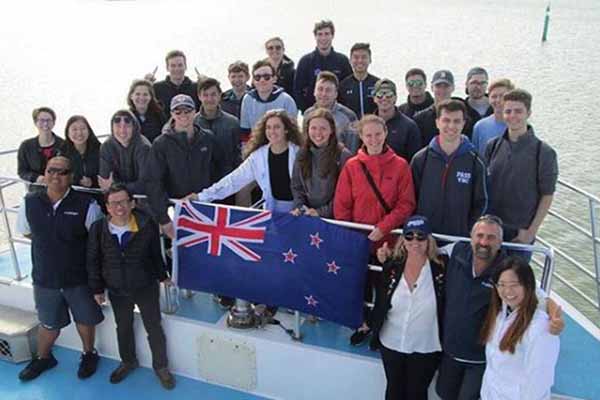
Global Experiences
Mechanical and industrial engineering faculty led a Dialogues of Civilization seven-week summer program "Exploring Engineering, History, and Culture in New Zealand." They visited two hydropower plants and had two six-day excursions visiting several sites throughout the country. A variety of other Dialogues of Civilization programs are available as well as global co-op, research and study abroad opportunities.
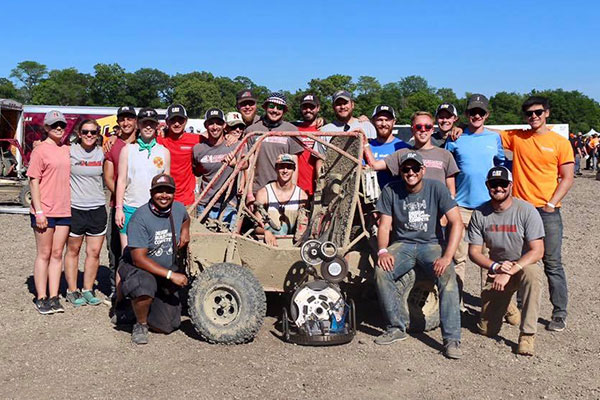
Student Organizations and Service Learning
The NU Motorsports Baja team competes nationally and has won many top prizes! The College of Engineering has over 50 student organizations for graduate and undergraduate students.
